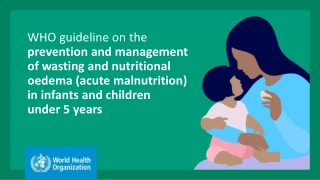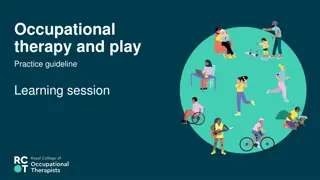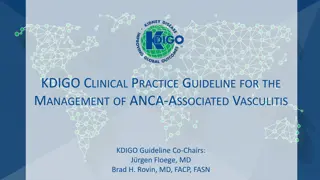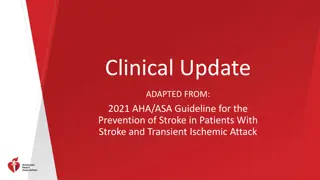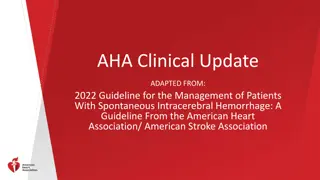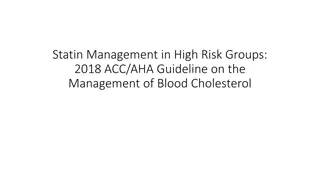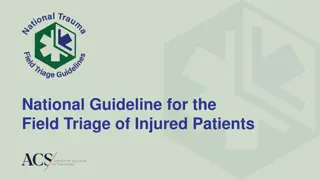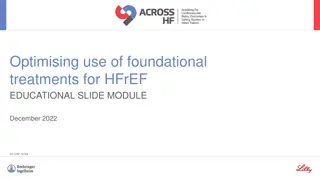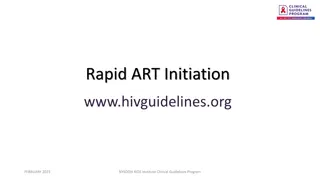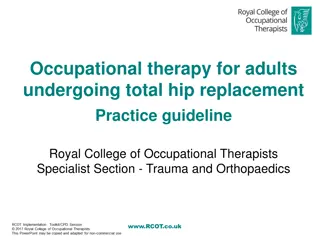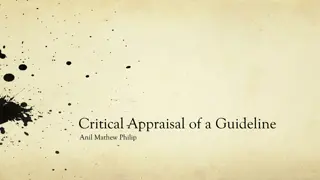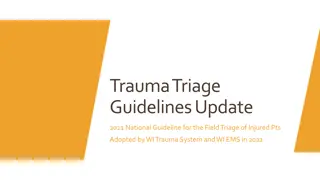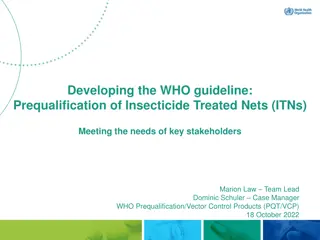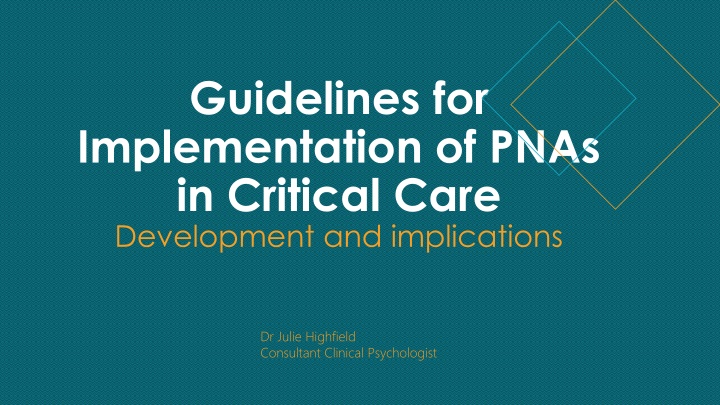
Implementation Guidelines for PNAs in Critical Care: Development & Implications
Explore the comprehensive guidelines and processes behind the development and consultation of PNAs in critical care, emphasizing key intentions, stakeholder insights, and supportive strategies for effective implementation in practice.
Download Presentation

Please find below an Image/Link to download the presentation.
The content on the website is provided AS IS for your information and personal use only. It may not be sold, licensed, or shared on other websites without obtaining consent from the author. If you encounter any issues during the download, it is possible that the publisher has removed the file from their server.
You are allowed to download the files provided on this website for personal or commercial use, subject to the condition that they are used lawfully. All files are the property of their respective owners.
The content on the website is provided AS IS for your information and personal use only. It may not be sold, licensed, or shared on other websites without obtaining consent from the author.
E N D
Presentation Transcript
Guidelines for Implementation of PNAs in Critical Care Development and implications Dr Julie Highfield Consultant Clinical Psychologist
Process of Development PINC UK SURVEY PNA Stakeholder group PNA PNA COP Survey Consultation Process Guideline PNA COP Discussion Endorsement process
Key Intentions of document MARKET MARKET ANALYSIS ANALYSIS ECOLOGICAL ECOLOGICAL ANALYSIS ANALYSIS To support PNAs in practice . To enable PNAs to set limits and boundaries To focus on PNA strengths
PNA Survey Role: creating safe spaces to support staff and support QI 50% felt able to deliver 62% given protected time 58% receive RCS themselves
PINC UK Survey 17 ICU Psychologists gave their thoughts on working alongside PNAs: Need for co-working and psychologists to support PNAs Concerned for welfare of PNAs being asked to provide psychological care and debriefs Not enough protected time Struggle for the role to fit into ICU setting & need for flexibility
Consultation groups PNA COP CC3N Circulated to all neonatal PNAs and PCCU PNAs PINC UK & ACP UK 38 individual responses received plus whole organisation collated responses
Peer Support Supportive conversations RCS Formalised reflection upon practice
Implications for Practice Focus on restorative clinical Places to reflect on practice and offer emotional support. Being valued and integrated into practice. Proactive, not reactive supervision. Not being pulled into mental Not running psychological debriefs Supporting the PNA with protected time, ongoing CPD and supervision. health roles
Project Analysis POSITIVE LIMITATIONS Overall, well received Offering a voice to PNAs written by PNAS Protecting time and embedding practice Welcomed by Psychological Professions as a way of working together and differentiating practice Some criticism for focussing on adult ICU PNAs We did consult with paeds and NICU Some people wanting a practical to do list Guidelines are not enforced, so variation will continue

